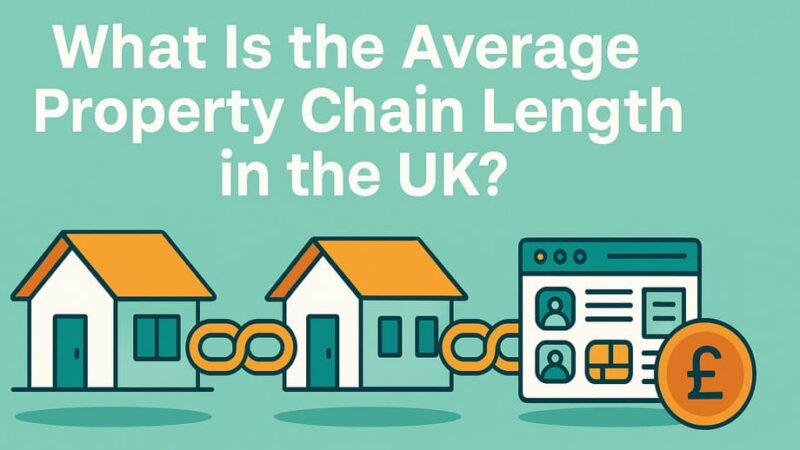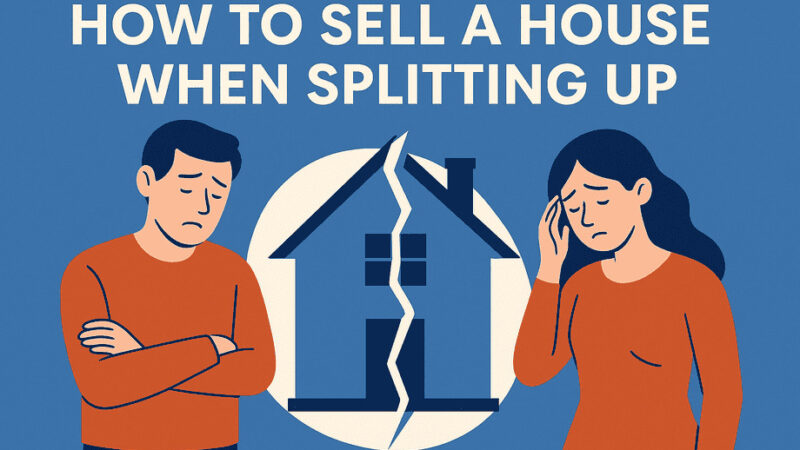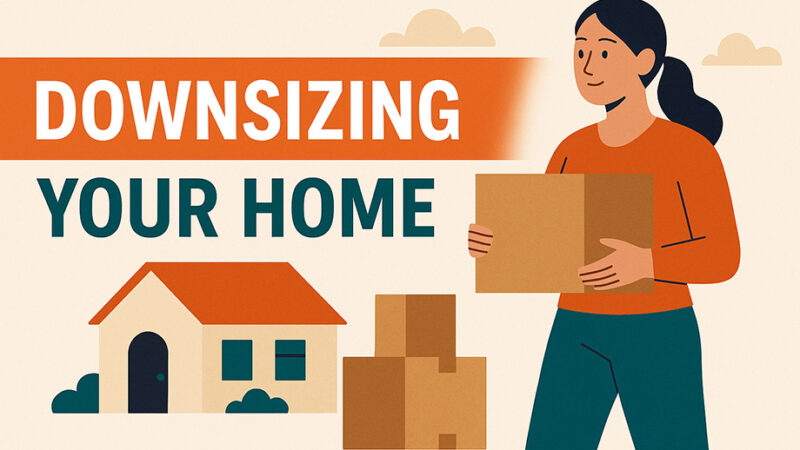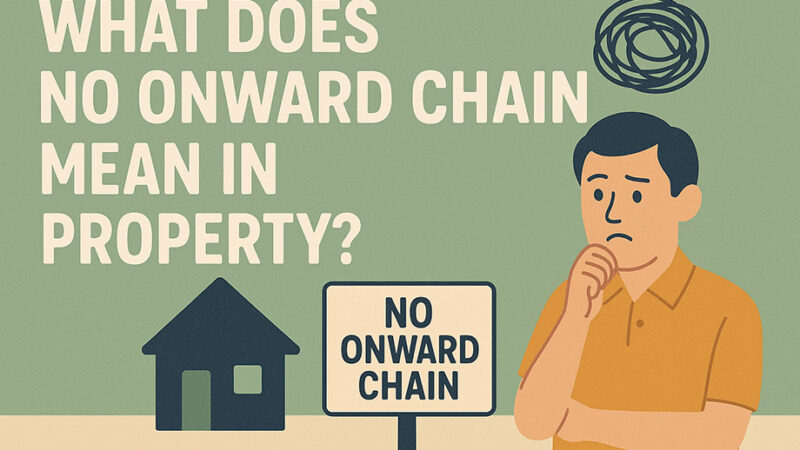Can I Sell My House with Japanese Knotweed in the UK? Everything You Need to Know
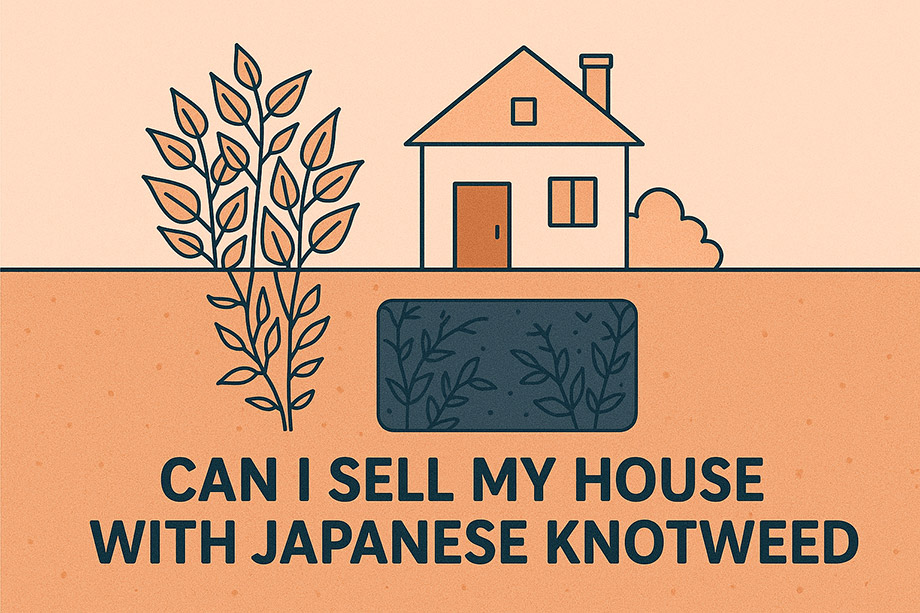
Discovering Japanese knotweed on your property when you’re trying to sell can be worrying. The good news is that yes, you can sell a house with Japanese knotweed in the UK. However, it does present challenges and you’ll need to take specific steps to ensure a successful sale.
While selling a property with Japanese knotweed is more difficult than selling an unaffected property, thousands of homes with knotweed are sold successfully each year. The key is being honest, getting professional help, and understanding what buyers and lenders need to see.
What is Japanese Knotweed?
Japanese knotweed (Fallopia japonica) is a fast-growing invasive plant that was brought to the UK in the 19th century. It’s now considered one of the most problematic plants for property owners because it can cause damage to buildings and is extremely difficult to remove.
The plant can grow up to 10cm per day during summer and can regrow from tiny fragments. Its underground root system can extend up to 7 meters from visible growth and can exploit weaknesses in buildings, potentially causing damage to foundations, walls, and drainage systems.
Why it matters for property sales:
- Can reduce property values by 5-15%
- Makes getting a mortgage more difficult
- Buyers are often put off by the presence of knotweed
- Legal requirements mean you must declare it
- Professional treatment can be expensive
Your Legal Obligations – The TA6 Form
When selling a property in England and Wales, you must complete a TA6 Property Information Form. This form includes a specific question asking: “Is the property affected by Japanese knotweed?”
You have three options to choose from:
- “Yes” – if Japanese knotweed has been identified on your property
- “No” – only if you’re absolutely certain there’s no knotweed within 3 meters of your property boundary
- “Not Known” – if you’re unsure about the presence of knotweed
Current Legal Guidance
The Law Society’s guidance states you should only answer “No” if you’re certain that no knotweed root system is present within 3 meters of your property boundary, even if there are no visible signs above ground.
Since it’s very difficult to be completely certain without extensive investigation, most solicitors now recommend answering “Not Known” rather than “No”. This protects you from potential misrepresentation claims while remaining honest.
Consequences of Not Declaring Knotweed
If you know Japanese knotweed is present and fail to declare it, you could face:
- Legal action for misrepresentation
- Claims for reduction in property value
- Liability for the buyer’s legal costs
- Potential prosecution for allowing the plant to spread
Even if you’ve treated or removed the knotweed before selling, you must still declare its historical presence on the property.
How Japanese Knotweed Affects Your Sale
Impact on Property Value
Properties with Japanese knotweed typically sell for 5-15% below market value. The exact impact depends on:
- How severe the infestation is
- How close it is to the main building
- Whether you have a professional treatment plan in place
- The local property market conditions
Mortgage Lending Issues
Many mortgage lenders are reluctant to lend on properties with Japanese knotweed because:
- The plant can potentially damage the property (their security)
- Property values may be affected
- Treatment can be expensive and time-consuming
However, lenders are becoming more flexible if you have:
- A professional management plan in place
- An insurance-backed guarantee for the treatment
- Documentation from accredited contractors
Reduced Buyer Pool
You’ll likely find that:
- Fewer buyers are interested in viewing
- Some buyers withdraw when they learn about knotweed
- Sales may take longer to complete
- You may need to consider cash buyers who don’t need mortgages
Steps to Successfully Sell with Japanese Knotweed
1. Get a Professional Survey
The first step is to get a Japanese knotweed survey from a Property Care Association (PCA) accredited contractor. This will:
- Officially identify and assess the knotweed
- Provide documentation for buyers and lenders
- Form the basis of any treatment plan
- Give you credibility with potential buyers
The survey typically costs £300-£600 depending on your property size.
2. Develop a Management Plan
A Knotweed Management Plan (KMP) outlines how the problem will be dealt with. It should include:
- Detailed assessment of the infestation
- Treatment method (usually herbicide application over 2-3 years)
- Monitoring schedule
- Site plans and photographs
- Timeline for completion
3. Get an Insurance Backed Guarantee
An Insurance Backed Guarantee (IBG) protects against treatment failure or the contractor going out of business. Most mortgage lenders require an IBG before they’ll approve a loan on a knotweed-affected property.
The guarantee typically lasts 5-10 years and covers the cost of any additional treatment needed.
4. Start Treatment Early
Professional treatment typically involves:
- Herbicide application over 2-3 growing seasons
- Regular monitoring visits
- Detailed progress reports
- Final certification when treatment is complete
Treatment costs usually range from £2,000 to £5,000 depending on the size and severity of the infestation.
5. Be Transparent in Marketing
Work with your estate agent to:
- Accurately describe the knotweed situation in property details
- Highlight the professional treatment plan you have in place
- Provide documentation to serious buyers early in the process
- Set realistic price expectations
Working with the Right Professionals
Choose PCA Accredited Contractors
Only use contractors accredited by the Property Care Association (PCA) for:
- Japanese knotweed surveys
- Treatment plans
- Ongoing monitoring
PCA accreditation ensures the contractor has proper training, insurance, and follows industry standards.
Find an Experienced Estate Agent
Not all estate agents understand Japanese knotweed issues. Choose one who:
- Has experience selling knotweed-affected properties
- Understands the legal requirements
- Won’t be put off by the complexity
- Has contacts with specialist buyers or investors
Use a Knowledgeable Solicitor
Your solicitor should understand:
- Japanese knotweed law and disclosure requirements
- How to properly complete the TA6 form
- What documentation buyers’ solicitors will expect
- Potential liability issues
Pricing Your Property
Be realistic about your asking price. Consider:
- The cost you’ve spent on surveys and treatment
- The impact on local property values
- Competition from unaffected properties
- The reduced pool of potential buyers
Even with a professional treatment plan in place, buyers may still negotiate on price due to the historical presence of knotweed.
Alternative Selling Options
Cash Buyers
If you want to avoid mortgage-related complications, consider selling to:
- Property investment companies
- Landlords building rental portfolios
- Developers looking for renovation projects
Cash buyers can often complete more quickly and aren’t restricted by lender requirements, though they may offer below market value.
Property Auctions
Auction sales can work well for knotweed-affected properties because:
- Buyers know about the issue before bidding
- The process is faster than traditional sales
- You might achieve a better price than expected
- Some auctioneers specialize in problem properties
Quick Sale Companies
Some companies specialize in buying problem properties quickly, including those with Japanese knotweed. While they typically offer below market value, they can provide certainty and speed.
What Buyers Want to See
To attract serious buyers and achieve the best price, provide:
- Professional survey reports
- Comprehensive management plan
- Insurance backed guarantee
- Evidence of treatment progress
- Clear documentation of all costs incurred
The more professional documentation you can provide, the more confident buyers will feel about proceeding.
Managing the Sales Process
Expect the sales process to be:
- Longer than normal – properties with knotweed typically take 25-50% longer to sell
- More complex – additional legal checks and documentation required
- More prone to fall-throughs – some buyers withdraw when they learn about knotweed
- Subject to negotiation – buyers may seek price reductions beyond your initial discount
The Bottom Line
Selling a house with Japanese knotweed is definitely possible, but it requires:
- Complete honesty about the knotweed presence
- Professional treatment with proper documentation
- Realistic pricing that reflects the impact
- Patience to find the right buyer
- Expert help from experienced professionals
While you’ll likely achieve a lower price than an unaffected property and face a longer sales process, being proactive and transparent gives you the best chance of success.
The key is not to panic or try to hide the problem. With the right approach and professional support, you can successfully sell your property and move on with confidence.
Frequently Asked Questions
Do I legally have to tell buyers about Japanese knotweed?
Yes, you must declare Japanese knotweed on the TA6 Property Information Form when selling. Failing to disclose it can lead to legal action for misrepresentation.
How much will Japanese knotweed reduce my house value?
Typically 5-15% depending on severity and location. Properties with professional treatment plans often achieve better prices than untreated ones.
Can I sell without treating the knotweed?
Yes, but your buyer pool will be limited mainly to cash purchasers. Most mortgage lenders require professional treatment plans before approving loans.
What should I answer on the TA6 form if I’m not sure about knotweed?
Answer “Not Known” rather than “No” if you’re unsure. This protects you legally while prompting the buyer to investigate further.
How long does Japanese knotweed treatment take?
Professional treatment typically takes 2-3 years with regular herbicide applications and monitoring. Some methods can be quicker but are more expensive.
Will estate agents refuse to sell my property?
Most won’t refuse, but choose an agent experienced with knotweed-affected properties for better results and realistic expectations.
Can knotweed come back after treatment?
With proper professional treatment and monitoring, successful eradication is achievable. Insurance backed guarantees protect against treatment failure.
What if buyers discover knotweed during their survey?
If you’ve been honest on the TA6 form, this shouldn’t be a problem. If you haven’t declared known knotweed, you could face legal action.
Should I get multiple quotes for treatment?
Yes, costs can vary significantly. Ensure all quotes are from PCA-accredited contractors and include comprehensive management plans and guarantees.
Is it worth treating knotweed before selling?
Usually yes, as it significantly increases your potential buyer pool and often results in better sale prices, even after accounting for treatment costs.
Last Updated on September 21, 2025 by James Cartwright



